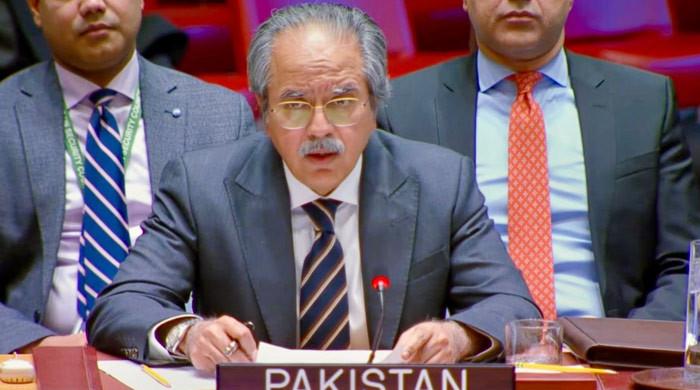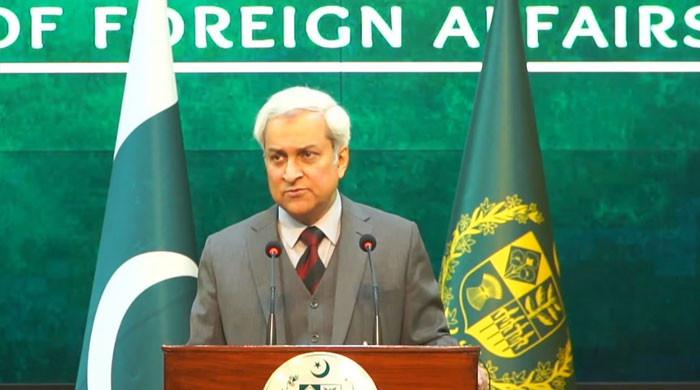Pakistan slams India's IWT stance as 'reckless violation of international law'
Amit Shah's statement reflects brazen disregard for sanctity of international agreements, says FO
June 21, 2025

- Foreign Office calls India's stance “dangerous precedent.”
- Says weaponising of water for political ends irresponsible.
- “Pakistan will take all necessary measures to protect its rights."
ISLAMABAD: Pakistan on Saturday strongly condemned Indian Home Minister Amit Shah’s assertion that the Indus Waters Treaty (IWT) "will never be restored," calling it a blatant breach of international law and a dangerous precedent.
"The statement reflects a brazen disregard for the sanctity of international agreements," Foreign Office Spokesperson Shafqat Ali Khan said in a statement issued in response to Shah’s comments.
India put into "abeyance" its participation in the 1960 treaty, which governs the usage of the Indus river system, after 26 civilians in Indian Illegally Occupied Jammu and Kashmir (IIOJK) were killed in what Delhi described as an act of terror.
The treaty guaranteed water access for 80% of Pakistan's farms through three rivers originating in India.
Pakistan has denied involvement in the incident, but the accord remains dormant despite a ceasefire agreed upon by the two nuclear-armed neighbours last month following their worst fighting in decades.
Speaking to the Times of India, the Indian home minister said that India will never restore the Indus Waters Treaty with Islamabad, and the water flowing to Pakistan will be diverted for internal use.
"We will take water that was flowing to Pakistan to Rajasthan by constructing a canal. Pakistan will be starved of water that it has been getting unjustifiably," said Shah, referring to the northwestern Indian state.
“The Indus Waters Treaty is not a political arrangement, but an international treaty with no provision for unilateral action,” said the FO spokesperson. "India’s illegal announcement to hold the treaty in abeyance constitutes a clear violation of international law, the provisions of the treaty itself, and the fundamental principles governing inter-state relations.”
Calling India's stance a “reckless and dangerous precedent,” the FO added that such behaviour “undermines the credibility of international agreements” and raises serious questions about “the reliability and trustworthiness of a state that openly refuses to fulfil its legal obligations.”
The spokesperson further warned that “weaponising water for political ends is irresponsible and contrary to established norms of responsible state behaviour,” urging India to “immediately rescind its unilateral and unlawful stance.”
“Pakistan remains firmly committed to the treaty,” the statement said, “and will take all necessary measures to protect its legitimate rights and entitlements under it.”
The latest comments from Shah, the most powerful cabinet minister in Prime Minister Narendra Modi's cabinet, have dimmed Islamabad's hopes for negotiations on the treaty in the near term.
Last month, Reuters reported that India plans to dramatically increase the water it draws from a major river that feeds Pakistani farms downstream, as part of retaliatory action.
Pakistan's foreign ministry did not immediately respond to Reuters' request for comments. But the ministry has stated in the past that the treaty has no provision for one side to unilaterally pull back, and that any blocking of river water flowing to Pakistan will be considered "an act of war".
Islamabad is also exploring a legal challenge to India's decision to hold the treaty in abeyance under international law.
— With additional input from Reuters











